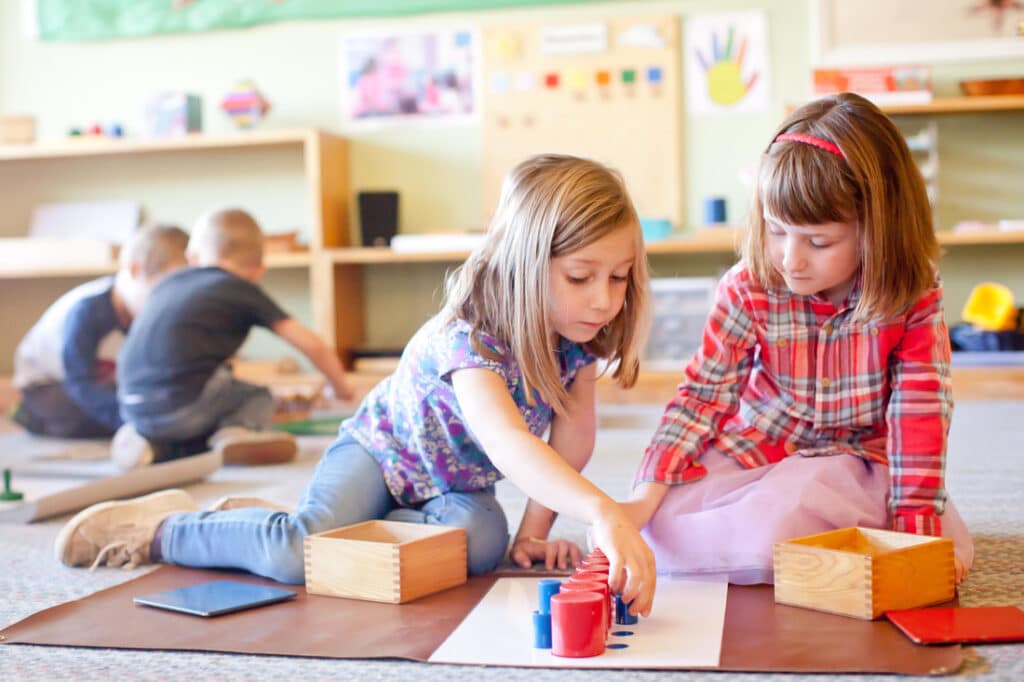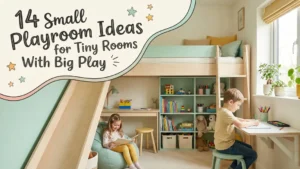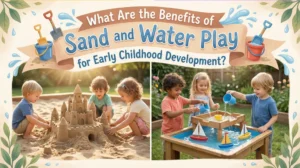The journey to our never-ending learning begins at birth. A newborn child starts to study his surroundings through his senses. As soon as they are born, they naturally start to observe. That is why your baby seems to be drawn to specific colors and sounds. Sensorial learning is a natural way to gain knowledge of our environment; hence it is one of the best ways to fully immerse our children in their education. It is a natural brain process that can be developed by using Montessori sensorial materials.
Confucius, the great Chinese philosopher, said: “I hear, and I forget, I see, and I remember, I do, and I understand.” This holds true even at the beginning of the learning stage in early childhood. Ages 0 – 6 years is a critical learning stage for our young ones. Children are like sponges; they absorb information incredibly. However, it takes more than a simple tell approach to grab and hold their attention. We believe that “doing” and allowing our children to engage in sensorial activities is how they learn best. They need to be encouraged to try something new to gain knowledge. They need to be instilled with the confidence to take part in their learning activities. These abilities should be developed as early as possible.
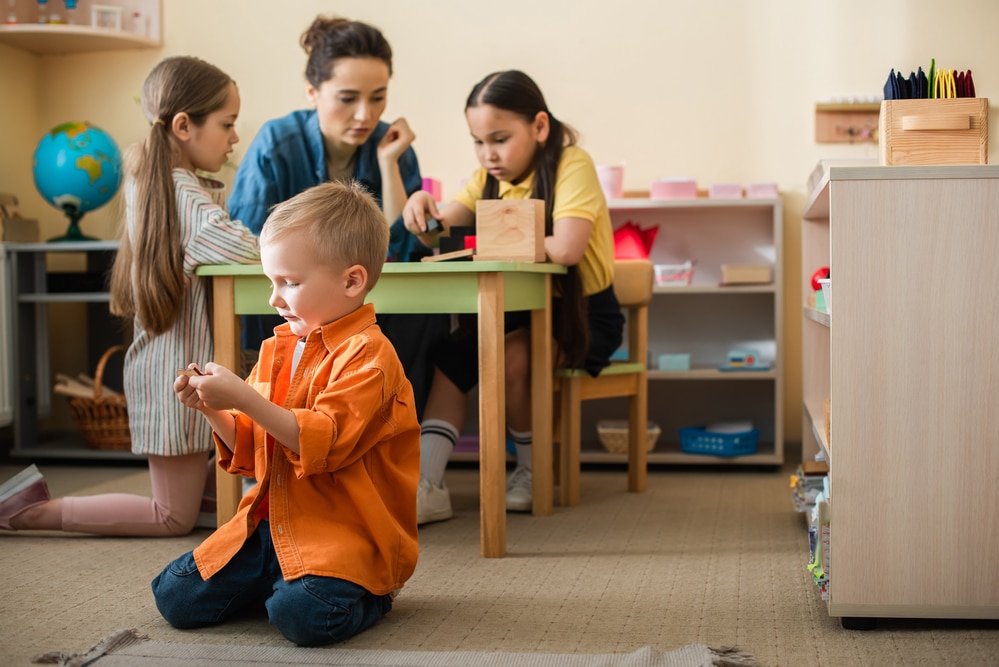
What is Sensorial Learning?
Sensorial learning is a teaching approach that stimulates the child’s five senses; taste, touch, smell, sight, and hearing. This allows children to use their senses to explore and understand the world around them. It includes activities that help them study objects, colors, textures, tastes, numbers, and situations.
In Montessori Academy, we believe that every child needs an education that fosters a life-long love for learning. We must introduce them to a teaching technique that is both fun and beneficial. Sensorial development will help them build necessary skills that include cognition and logic.
What are Montessori Sensorial Materials?
Montessori Sensorial Materials are creative tools or toys used in a Montessori classroom that boost the child’s five senses, enabling them to learn better. There are different kinds of sensorial materials designed to rouse a child’s interest to learn.
Some examples of sensorial materials are:
The Pink Tower – The pink tower consists of 10 pink cubes in varying sizes. By stacking the cubes on top of the other, the kids will start from the biggest hub and then add the second biggest cube on top of it.
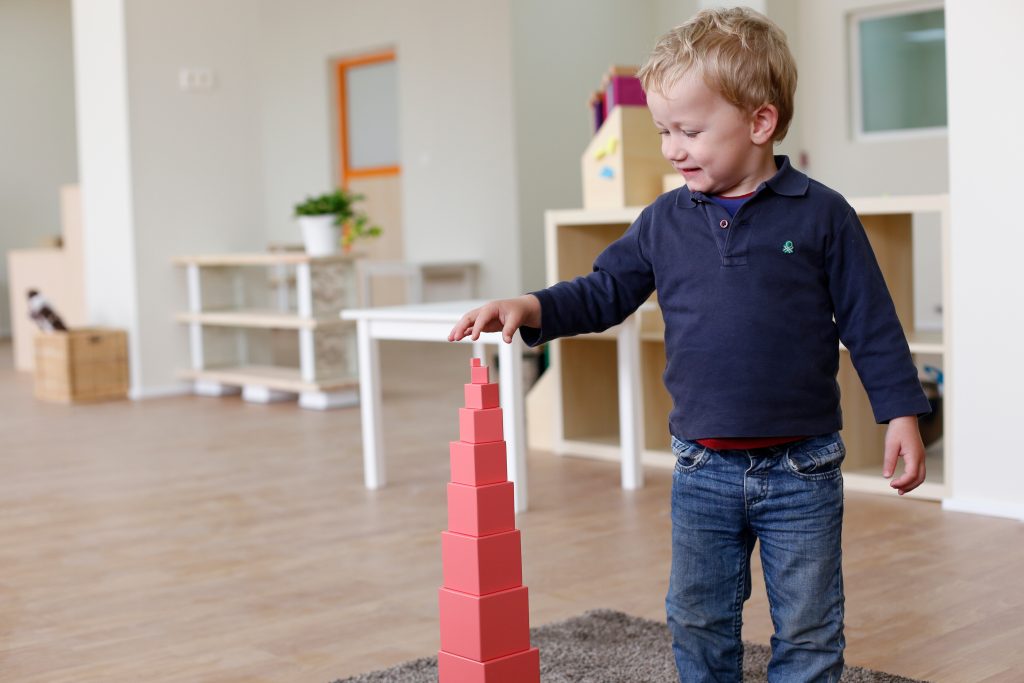
Knobbed Cylinder blocks – The very first sense lesson in the sensorial area of the classroom. Consist of ten wooden cylinders has different dimensions. Just remove the cylinders from the block and put it back from where it is placed at first.
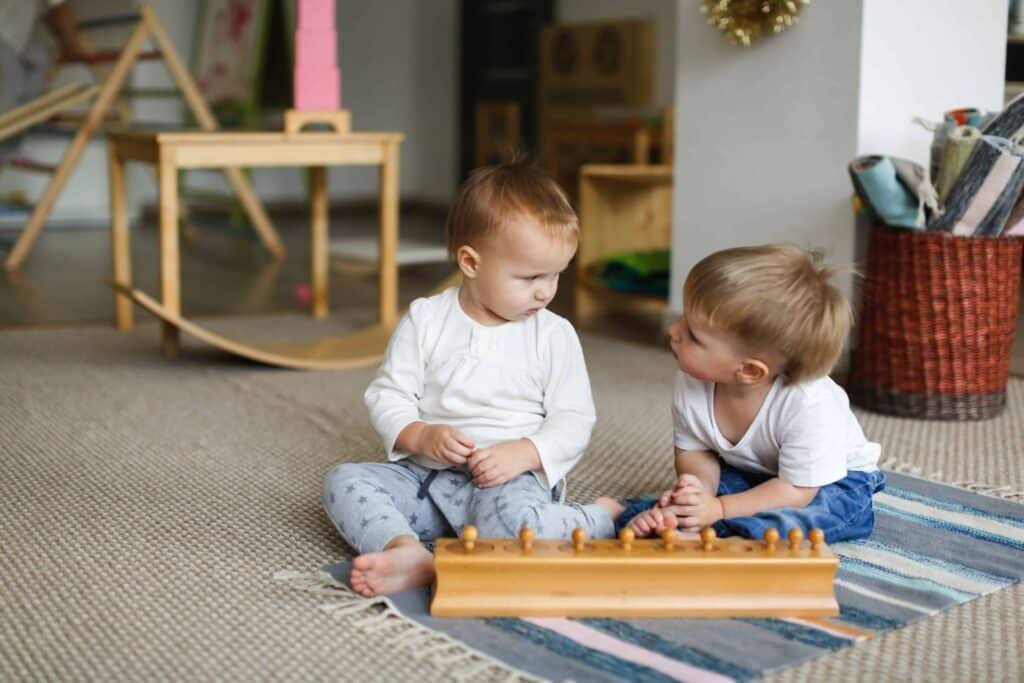
Baric Tablets – Made of wooden tablets with a different weight that helps the kids to determine the difference between the weight of the woods.
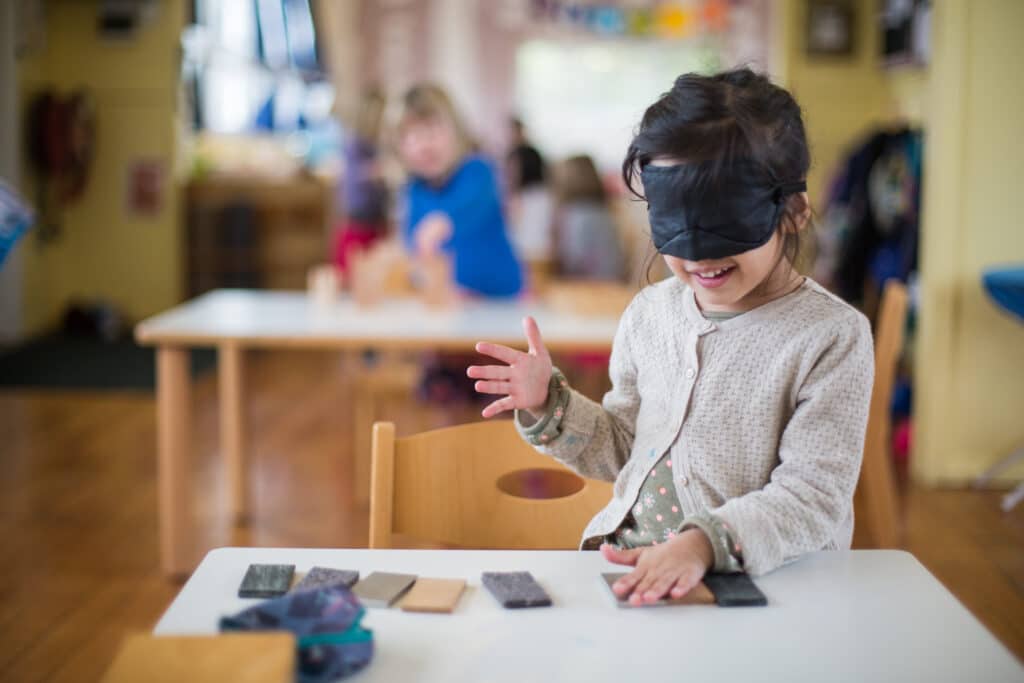
Trinomial Cube – The main activity is to let the child make a three-dimensional puzzle that consists of 27 wooden blocks. This activity will lead the child to learn algebra.
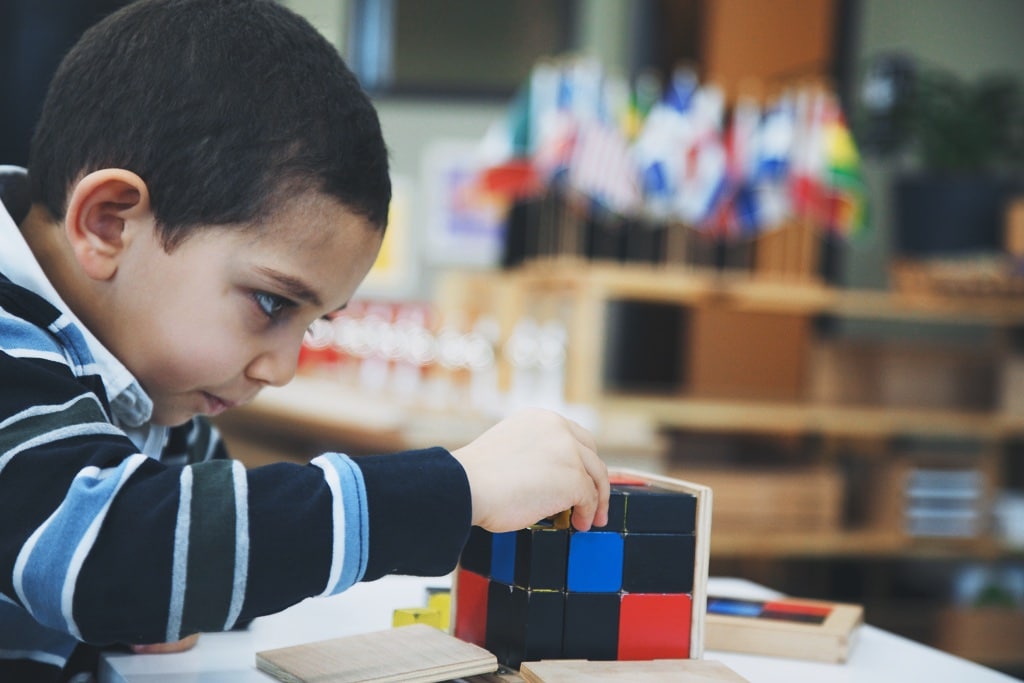
These materials are intended to match the difficulty level of everyday life. Montessori sensorial materials have what is called “control of error,” which means that the child’s learning doesn’t end with working with the material. They also provided a way to check or scrutinize their work rather than seeking out the teacher whether or not they did it right. It helps promote the child’s independence and problem-solving skills.
With a lot of different toys being introduced in the market today, we must have an understanding of which will benefit our child the best.
Benefits of Sensorial Learning
Develops nerve connections – a newborn baby’s brain has 100 billion neurons. As these neurons grow, the synapses or connections between brain cells increase accordingly. However, synapses may also decrease as the brain eliminates links that are rarely or never used.
Sensorial learning builds nerve connections in the brain’s pathway by promoting activities that stimulate their senses. This will heighten our little one’s ability to accomplish more intricate tasks later on.
Enhances memory – studies show that using only the auditory approach of teaching makes the brain easily forget a piece of information. One of the benefits of sensorial learning is that it enhances the child’s ability to retain lessons by allowing them to learn through “experience.” Your baby’s motor memory will be improved by practice.
Promotes critical thinking and problem-solving – Montessori sensorial learning introduces your baby to different enjoyable activities that will make them wonder. These activities are designed to give them a healthy amount of stress that arouses their problem-solving abilities.
Helps in calming your child – do you worry that your child may be crying too much? Maybe he tends to be anxious or frustrated? Crying is a healthy brain development that all our children go through. Sensorial activities are a fun way that helps in controlling your child’s agitation and restlessness. It can ease their discomfort and calm their anxiety. These activities aimed at introducing them to new learnings without overstimulating them.
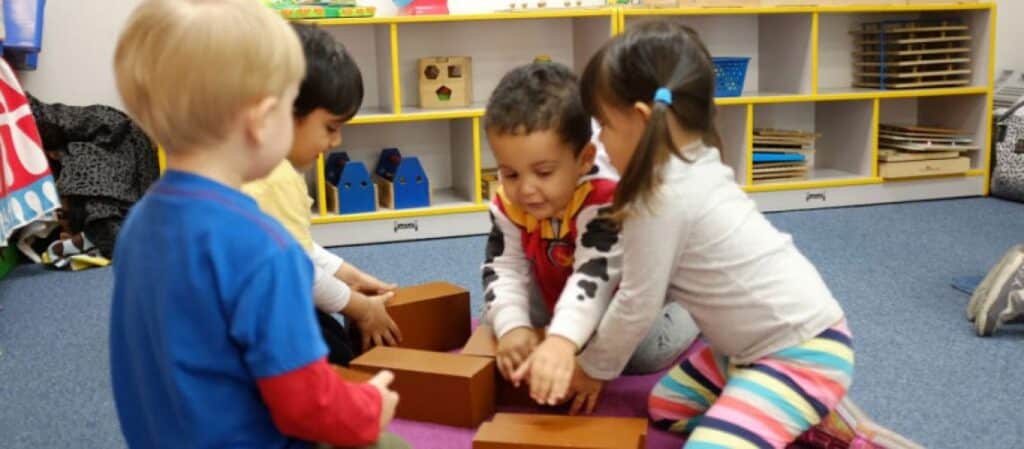
Reinforces childhood development –According to a study conducted by scientists, language skills are developed most easily during the first ten years of your child’s life. It is also during those years that they acquire cognitive growth and motor skills. So please take advantage of your child’s formative years by providing them the best way to learn. Sensorial learning exposes your babies repeatedly to activities and experiences that reinforce their brain development.
Supports social skills – sensorial development allows your child to enjoy working together with others and establish strong social interactions. It gives them a sense of belongingness, develops their compassion, and equips them with better communication skills. Their verbal and non-verbal interactions will provide them with an excellent foundation to become better people as they grow older.
In this digital age, more and more young ones are exposed to computer games that lack the essential use of all senses. It is our responsibility to act, as parents and educators, and to provide them with a solid foreground for schooling. It is vital right now to instill physical and mental engagement in their education. Montessori sensorial learning is a type of training that your kids will love. It is incredibly beneficial for them. Your little loved ones rely on you to get the proper learning that they will carry through their life. The sooner you start sensorial learning, the better your children will reap its benefits!

